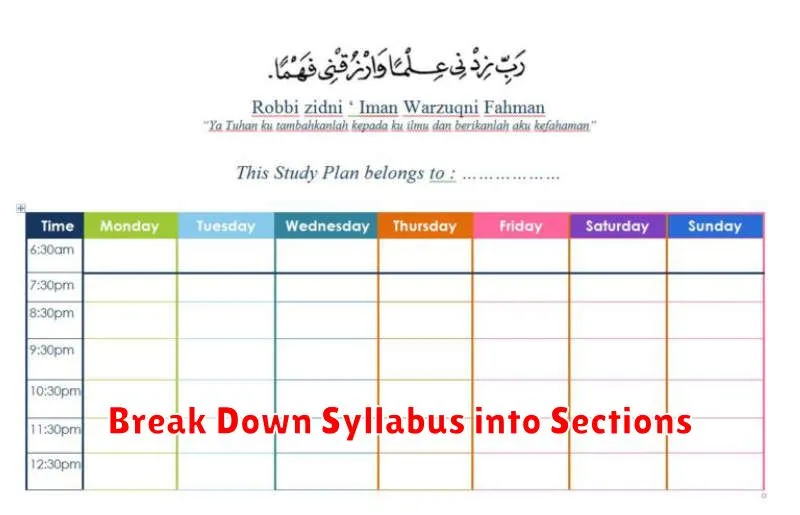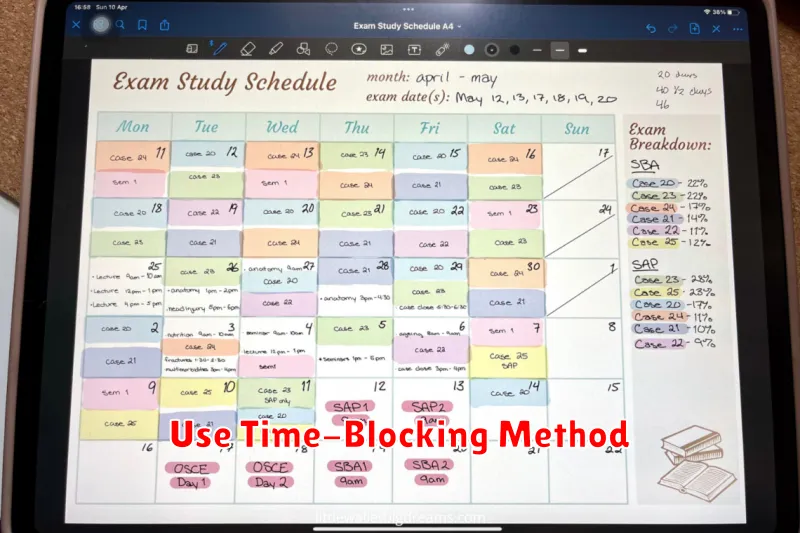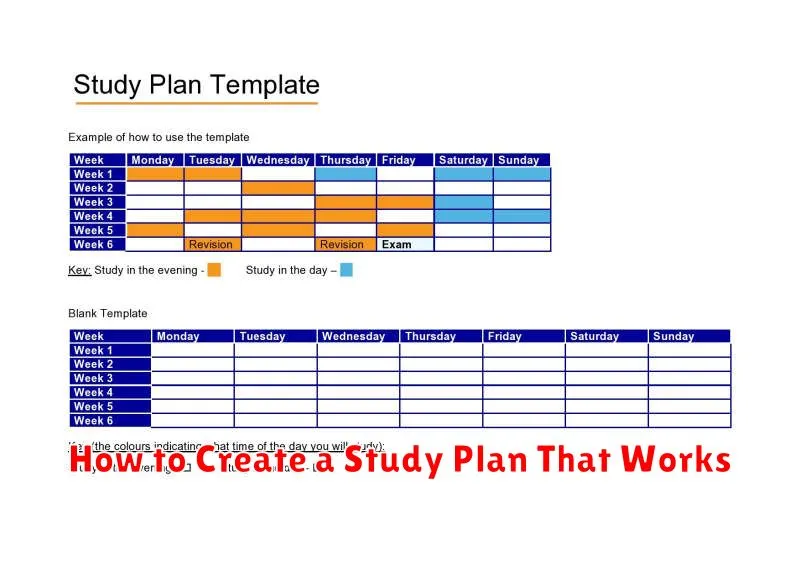Creating a study plan is a crucial step towards achieving academic success. A well-structured study plan helps you organize your time effectively, prioritize study tasks, and improve your overall learning experience. Whether you are preparing for an important exam, working on a long-term project, or simply aiming to improve your grades, developing a personalized study plan is essential. This article will guide you through the process of creating a study plan that works, offering practical tips and strategies to optimize your study habits and achieve your academic goals.
Many students struggle with creating a study plan that effectively addresses their individual needs and learning style. They may find themselves overwhelmed with the amount of material to cover or unsure how to allocate their study time efficiently. This often leads to procrastination, stress, and ultimately, suboptimal academic performance. A successful study plan should be more than just a schedule; it should be a personalized roadmap that incorporates your study goals, available study time, preferred learning methods, and breaks. This article will provide you with a step-by-step approach to develop a study plan that not only works but also helps you stay motivated and engaged throughout your study sessions.
Set Clear Academic Goals
Clear academic goals are the foundation of an effective study plan. Without a defined target, your study efforts can become unfocused and unproductive. Begin by identifying what you want to achieve academically. This could be anything from improving your overall GPA to mastering a specific subject.
Specificity is key. Instead of a general goal like “do better in math,” aim for something measurable, like “increase my math grade by one letter grade” or “score at least 80% on the next math exam.” Measurable goals provide a benchmark to track your progress and stay motivated.
Consider breaking down larger goals into smaller, more manageable steps. For example, if your goal is to ace the final exam, break it down into weekly topics you need to cover. This makes the overall goal less daunting and allows you to celebrate small victories along the way.
Break Down Syllabus into Sections

A syllabus is your roadmap for the course. Don’t treat it as just a document to be filed away. Instead, use it as a critical planning tool.
Start by dividing the syllabus into manageable sections. Most syllabi are already organized by topics or weeks. Use this existing structure to your advantage. If your syllabus isn’t clearly sectioned, create your own divisions based on topics, chapters, or projects.
For each section, identify the key learning objectives. What are you expected to know or be able to do after completing that section? Understanding these objectives will focus your study efforts.
Pay close attention to any weighting assigned to different sections or assignments. If the final exam is worth 50% of your grade, allocate more study time accordingly.
Use Time-Blocking Method

Time-blocking is a powerful technique for scheduling your study sessions. It involves allocating specific blocks of time for dedicated studying, treating them like important appointments. This method helps eliminate procrastination and promotes focused work.
Start by identifying your available study time. Consider your daily schedule, including classes, work, and other commitments. Then, divide your available time into blocks, dedicating each block to a specific subject or task. For example, you might allocate Monday from 9 AM to 11 AM for Math review, and Tuesday from 2 PM to 4 PM for History reading.
Be realistic about how long you can maintain focus. Shorter, more frequent study sessions can be more effective than long, infrequent ones. Consider incorporating short breaks between blocks to avoid burnout.
Include Breaks and Rest Time
Breaks are essential for effective studying. They prevent burnout and allow your brain to process information. Don’t try to cram everything into one long session. Short, frequent breaks are more beneficial than one long break.
Schedule your breaks as part of your study plan. A common technique is the Pomodoro Technique, which involves 25 minutes of focused study followed by a 5-minute break. Experiment to find what works best for you. Some might prefer longer study periods with longer breaks.
Rest is equally important. Adequate sleep allows your brain to consolidate memories. Make sure to incorporate enough sleep into your weekly schedule. A tired mind is less receptive to learning.
Avoid Multitasking
Multitasking can seem like an efficient way to study, but research suggests it significantly reduces productivity and comprehension. Focusing on multiple tasks simultaneously divides your attention, preventing deep learning and hindering information retention.
Instead of juggling multiple subjects or activities, dedicate specific blocks of time to individual tasks. This focused approach, often referred to as single-tasking, allows for deeper engagement with the material and promotes better understanding.
Create a study schedule that allocates specific time slots for each subject. When studying a particular topic, eliminate distractions such as social media, email, and other notifications. This dedicated focus will enhance your learning and improve overall study effectiveness.
Track Progress and Adjust Plan
Tracking your progress is crucial for a successful study plan. Regularly assess whether you are meeting your goals. This helps you stay motivated and identify areas needing adjustment.
Use a planner, calendar, or app to monitor your study sessions and completed tasks. Compare your actual progress with your planned schedule. Are you on track? Are you falling behind in certain areas?
If you find yourself consistently behind, don’t be afraid to adjust your plan. Re-evaluate your schedule. Perhaps you need to allocate more time to challenging subjects or break down large tasks into smaller, more manageable steps. You might also consider adjusting your study methods.
Flexibility is key. Life happens, and unexpected events can disrupt even the best-laid plans. Be prepared to adapt and revise your schedule as needed.
Tools and Apps for Study Planning
Leveraging technology can significantly enhance your study plan’s effectiveness. Various tools and apps offer features designed to streamline scheduling, organization, and tracking progress. Choosing the right tools depends on your individual learning style and preferences.
Calendar Applications: Digital calendars are essential for time blocking and setting study reminders. Integrate your academic calendar with your personal schedule for a comprehensive view of your commitments.
Note-Taking Apps: These apps provide a centralized platform for organizing notes, creating flashcards, and collaborating with peers. Features like searchable text and multimedia integration can improve recall and understanding.
Task Management Apps: Break down large assignments into smaller, manageable tasks. Track deadlines and monitor your progress to stay motivated and avoid feeling overwhelmed.
Focus Apps: Minimize distractions by utilizing apps that block social media and other non-essential websites during dedicated study periods. This can help improve concentration and productivity.

